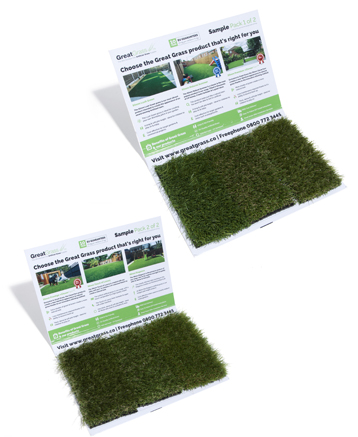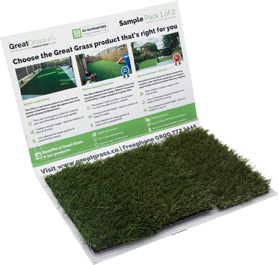Over the past few decades, artificial grass has been experiencing an unprecedented rise the world over. The material may have taken a few decades to capture the attention of the general public, being initially used only as an alternative covering surface for sports pitches, but once home and garden-owners cottoned on to its many qualities, its expansion has flourished at a consistenly rapid pace. Today, artificial turf has proponents in all four corners of the world, and is almost as common as natural grass in not only sports pitches and surfaces, but domestic back yards and even public spaces such as parks or children’s play areas.
The reasons behind this quick expansion are not at all hard to explain; as noted above, artificial grass boasts a number of qualities which make it a favourite among a number of home-owners and sports facility managers. The material’s durability, for example, is a definite selling point, as are its resistant nature, its low maintenance requirements and the increase in performance it allows for in the context of athletic competition.
This combination of factors makes artificial grass particularly suited to not only certain purposes, but also certain demographics. The versatile nature of the material, and the many uses it can be put to, have been amply demonstrated, but much less thought has been given to how and why artificial turf can benefit certain types of individuals.
It is with the intent of shedding some light upon this question that the synthetic lawn experts at GreatGrass have decided to put together a blog post detailing the demographics who can benefit from artificial grassthe most, and offering a brief explanation as to why that is the case. That attempt is contained in the lines below.
Allergy Sufferers
The first type of user who can benefit from artificial grass as opposed to a natural lawn are people with allergies, namely allergies caused by natural factors such as pollen. This tends to be one of the main challenges faced by home-owners with natural lawns, as certain times of the year, particularly spring time, bring about a number of factors which can cause allergies to flare up. From the aforementioned pollen to poisonous plants such as poison ivy or even certain types of flowers or bugs, a natural lawn will typically be rife with potentially hazardous materials and components for an allergy sufferer.
Artificial grass, on the other hand, is entirely hypo-allergenic, with many rolls being especially treated to ensure they do not cause allergies or irritant reactions of any kind. The synthetic polymers turf rolls are typically made of are, similarly, chosen specifically to ensure no reaction of this type occurs, making this type of covering entirely safe for allergy sufferers.
The material they are made of is not, however, the only selling point of artificial grass rolls where allergy sufferers are concerned. Being entirely artificial, and containing none of the natural elements a ‘real’ lawn would contain, this type of covering does not attract insectss, weeds or wild animals of any sort, thereby eliminating some of the main sources of allergies garden-owners are typically subjected to in the context of a natural lawn. As such, and since the planting of flowers and shrubbery is typically a conscious decision rather than happenstance, it is not difficult to see how allergy sufferers might be considerably better off installing an artificial lawn than insisting on a ‘real’, natural one.
Disabled Individuals
Another class of user who can benefit from artificial grass are people with disabilities, namely those relating to physical impairment or handicaps.
This is because a natural lawn can, at the best of times, be hard to maintain. Not only is it necessary to periodically trim and water the grass to ensure it stays verdant, garden-owners with real grass carpets also typically have to stay on top of weeding and pest control, as well as fix any damage the surface may accidentally incur, such as holes or loose tufts. As such, it can often be hard for people with reduced mobility or another limiting physical condition to provide the amount of care these surfaces require, resulting in forced abandon and neglect for the lawn.
Once again, however, artificial grass provides the perfect alternative solution. As noted above, this material is known for its extremely negligible care and upkeep requirements, and can in fact be left almost devoid of maintenance and still keep to a reasonable standard. Artificial lawns do not require watering or weeding, and as also noted above, will not attract wildlife which may burrow into and out of the lawn, resulting in no holes or imperfections to fix. As such, they stand as a far more sensible and manageable option for people with disabilities than any type of natural lawn.
Parents and Pet Owners
Finally, artificial grass can be considered to be particularly beneficial for households with children or pets.
In fact, nearly all of the attributes artificial grass is known for are, in some way or another, beneficial for pet parents and families with children. The material’s durability, for instance, means it is very hard for a dog, for example, to dig a hole into the carpet, while its hygienic nature, also mentioned above, is a guarantee that children and animals will not get dirty from playing on it. Both these factors represent significant peace of mind for home-owners, who often find themselves having to bathe their children or pets after a romp in the garden.
In addition to this, artificial grass is hypo-allergenic, as mentioned earlier in this text, meaning children and pets will not break out into rashes or develop allergic reactions from sitting or rolling on it; further, most artificial turf rolls tend to come equipped with an efficacious waste disposal system, making it much easier and tidier to collect animal waste than on ‘regular’ grass. These factors, when combined with the ones described in the previous paragraph, are in large part responsible for the growing popularity of artificial grass among home-owners.
As the lines above have hopefully made clear, then, there are definitely some demographics and users who can benefit from artificial grass even more than the average westerner. Here at GreatGrass, we always tend to particularly recommend one of our artificial turf rolls whenever we come across a customer fitting one of the profiles above, as we know just how much the material can do for them!


